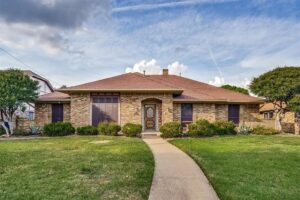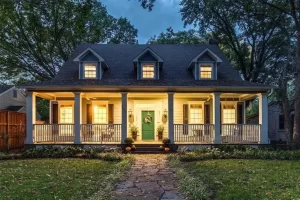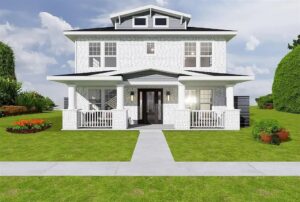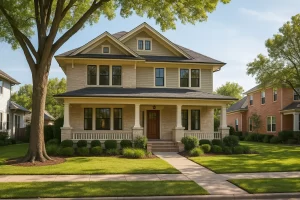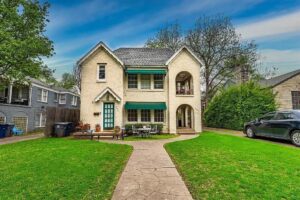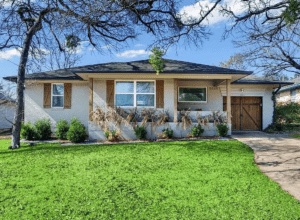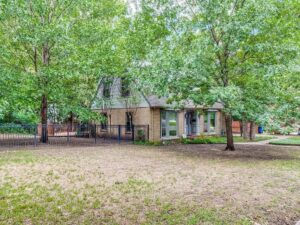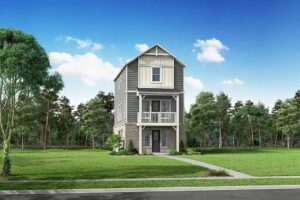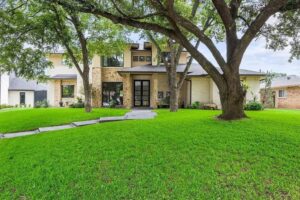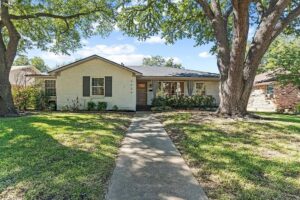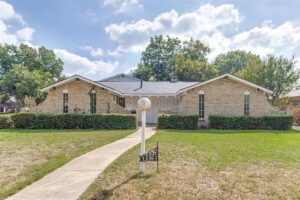Introduction
Dallas, Texas, is a vibrant city known for its diverse living options, cultural richness, and economic opportunities. Whether you’re drawn by its bustling downtown or tranquil suburban neighborhoods, Dallas offers something for everyone. Understanding the cost of living in Dallas is crucial for anyone considering a move to this dynamic city. This blog post provides a comprehensive Dallas Living Costs Guide to help you navigate the various expenses associated with living in Dallas, ensuring you make an informed decision.
Moreover, Dallas is appealing due to its relatively moderate cost of living compared to other major U.S. cities. However, it’s essential to get a clear picture of different cost components such as housing, utilities, transportation, food, and healthcare. By breaking down these expenses, we aim to equip you with the knowledge needed to plan your budget effectively and make the most of what Dallas has to offer.
Overview of the Dallas Living Costs Guide
Compared to other major U.S. cities, Dallas boasts a relatively moderate cost of living. While not the cheapest, it offers a good balance between affordability and quality of life. Major cost components include housing, utilities, transportation, food, and healthcare. Understanding these elements will help you budget effectively and enjoy all that Dallas has to offer.
Dallas’s cost of living is generally lower than cities like New York or San Francisco but can be higher than the national average in some aspects. Housing tends to be the most significant expense, but costs for utilities, transportation, and groceries are also important to consider. Healthcare costs in Dallas are relatively moderate but can vary based on the provider and type of care needed. With this in mind, let’s delve deeper into each of these components to give you a clearer picture.

Housing Costs in Dallas Living Costs Guide
Housing is one of the most significant expenses in Dallas. On average, rent for a one-bedroom apartment in the city center is around $1,500 per month. Meanwhile, the same apartment in suburban areas might cost approximately $1,200 per month. Home prices vary widely depending on the neighborhood. For instance, the median home price in Highland Park is significantly higher than in more affordable areas like Oak Cliff. Moreover, factors such as proximity to amenities, school districts, and neighborhood safety heavily influence housing prices. Therefore, it’s crucial to consider these factors when choosing where to live. They can substantially affect both your budget and quality of life.
Additionally, the type of housing available varies across different neighborhoods. Downtown and Uptown offer a mix of high-rise apartments, modern condos, and historic lofts. This caters to those who prefer urban living with easy access to entertainment and cultural attractions. In contrast, areas like Plano and Frisco provide more suburban options, with spacious single-unit homes and community-oriented amenities. These areas are ideal for households. Furthermore, the choice between renting and buying also plays a role in determining your housing expenses. Each option has its own set of advantages and financial implications. Thus, whether you’re looking for a trendy urban apartment or a quiet suburban home, Dallas has a range of housing options to suit diverse needs and budgets.
Utilities and Services in Dallas Living Costs Guide
The average monthly cost for utilities (electricity, water, gas, and internet) in Dallas is about $150-$200 for a standard apartment. Seasonal variations, particularly in summer, can cause electricity bills to spike due to increased air conditioning use. Additional services like trash collection and sewer typically add another $30-$50 to your monthly expenses. Understanding these costs can help you manage your monthly budget more effectively and avoid surprises.
It’s also worth noting that utility costs can vary depending on the age and energy efficiency of your home. Newer homes and apartments often have better insulation and more efficient appliances, which can help lower utility bills. Additionally, Dallas offers various programs and incentives to encourage energy conservation, which can further reduce your expenses. Staying informed about these options can help you optimize your utility costs.
Transportation Costs in Dallas Living Costs Guide
Dallas offers a variety of public transportation options to accommodate its residents. The DART (Dallas Area Rapid Transit) system includes buses and light rail. Therefore, it is a viable option for those who prefer not to drive. A monthly DART pass costs around $96, providing unlimited access to public transportation across the city. For those who own cars, expenses include gasoline, which averages about $3.00 per gallon, and insurance, which can cost around $1,300 annually. Additionally, parking fees, especially in densely populated areas like downtown, can add up. Thus, it’s important to budget accordingly and consider your daily transportation needs.
Commute times in Dallas can vary significantly depending on where you live and work. Suburban areas like Plano and Frisco offer a more relaxed, spacious lifestyle. However, this can result in longer commute times to downtown. Conversely, living in central areas like Uptown or Downtown Dallas can minimize commute times and reduce transportation costs. However, these areas may come with higher housing expenses. Moreover, the availability of bike lanes and walkable neighborhoods plays a role in reducing transportation costs. This also promotes a healthier lifestyle. Therefore, balancing these factors can help you find the most cost-effective and convenient transportation options for your lifestyle in Dallas.

Food and Grocery Costs in Dallas Living Costs Guide
Grocery prices in Dallas are comparable to the national average. A typical grocery bill for a household of four might range from $500 to $800 per month. Dining out can vary widely, with fast food meals averaging $7-$10 per person and mid-range restaurant dinners costing about $30-$50 per person. Dallas also boasts numerous farmers markets offering fresh, local produce, which can be a cost-effective and healthy option.
The diversity of Dallas’s culinary scene means you can find a wide range of dining options to fit any budget. From upscale restaurants in neighborhoods like Uptown to affordable food trucks and casual eateries scattered throughout the city, there’s something for every taste and price range. Additionally, the availability of discount grocery stores and bulk purchasing options can help households save on their monthly food expenses.
Healthcare Costs in Dallas Living Costs Guide
Dallas is home to some of the best healthcare facilities in Texas, including Baylor University Medical Center and UT Southwestern Medical Center. The average cost for health insurance in Dallas is around $400 per month for an individual and $1,200 for a household. Routine doctor visits typically cost between $100 and $200 without insurance, while more extensive medical procedures can be significantly higher. Compared to national averages, Dallas healthcare costs are relatively moderate but can add up depending on your needs.
It’s also essential to consider the availability and cost of prescription medications, dental care, and specialty medical services. Dallas offers various healthcare plans and providers, allowing residents to choose coverage that best fits their needs and budgets. Preventive care and wellness programs are also widely available, helping to manage long-term healthcare costs by promoting a healthier lifestyle.
Education and Childcare Costs in Dallas
Education and childcare are critical considerations for households moving to Dallas. Public schools in top districts like Highland Park and Coppell offer excellent education but come with higher housing costs. Private school tuition can range from $10,000 to $30,000 per year. Daycare and preschool fees average $800 to $1,200 per month. Additional educational expenses, such as extracurricular activities and tutoring, can also add to your budget.
It’s important to research the specific schools and childcare providers in the neighborhoods you’re considering. Factors such as class sizes, teacher qualifications, and available programs can significantly impact the quality of education and care your children receive. Many neighborhoods also offer after-school programs and community centers that provide affordable extracurricular activities and enrichment opportunities.

Entertainment and Leisure Costs in Dallas
Entertainment options in Dallas are abundant, from cultural events and sports to outdoor activities. Gym memberships average around $30-$50 per month. Movie tickets cost about $12 each, and attending cultural events like concerts or theater performances can range from $20 to $100 per ticket. Fortunately, Dallas also offers many free or low-cost entertainment options, such as visiting parks, attending community events, and exploring local museums.
Dallas’s rich cultural scene means there’s always something to do, regardless of your budget. The city hosts numerous festivals, art shows, and community events that provide free or affordable entertainment. Parks and recreation centers offer spaces for sports, picnics, and group gatherings, while local libraries and community centers often provide free classes and activities. By taking advantage of these resources, residents can enjoy a vibrant lifestyle without breaking the bank.
Miscellaneous Costs in Dallas
Other living expenses in Dallas include clothing and personal care, which can vary based on lifestyle and preferences. Average monthly costs for clothing and personal care products can be around $100-$200. Pet owners should budget for veterinary care, food, and grooming, which can add another $50-$100 per month. Additionally, miscellaneous expenses such as subscriptions and hobbies can range widely depending on individual interests.
Shopping for clothing and personal items can be managed by taking advantage of sales, discounts, and second-hand stores. For pet owners, regular veterinary check-ups and preventive care can help avoid higher costs from unexpected medical issues. Hobbies and personal interests can also be enjoyed affordably by exploring community resources, such as free workshops, local clubs, and public events.
Tips for Managing the Cost of Living in Dallas
To manage the cost of living in Dallas effectively, consider the following tips:
- Budgeting and Financial Planning: Create a detailed budget to track your income and expenses, ensuring you live within your means. This includes setting aside funds for unexpected expenses and emergencies.
- Cost-Saving Tips: Take advantage of discount programs, shop during sales, and utilize utility-saving techniques to reduce monthly bills. Consider carpooling or using public transportation to save on commuting costs.
- Affordable Housing and Services: Research affordable housing options and utilize resources like housing assistance programs and community services. Explore different neighborhoods to find the best balance between cost and amenities.
Engaging in community activities and local events can also provide low-cost entertainment and help you connect with your neighbors. Additionally, regularly reviewing your budget and adjusting it as needed can ensure you stay on track financially. By staying informed and proactive, you can enjoy a comfortable lifestyle in Dallas without overspending.
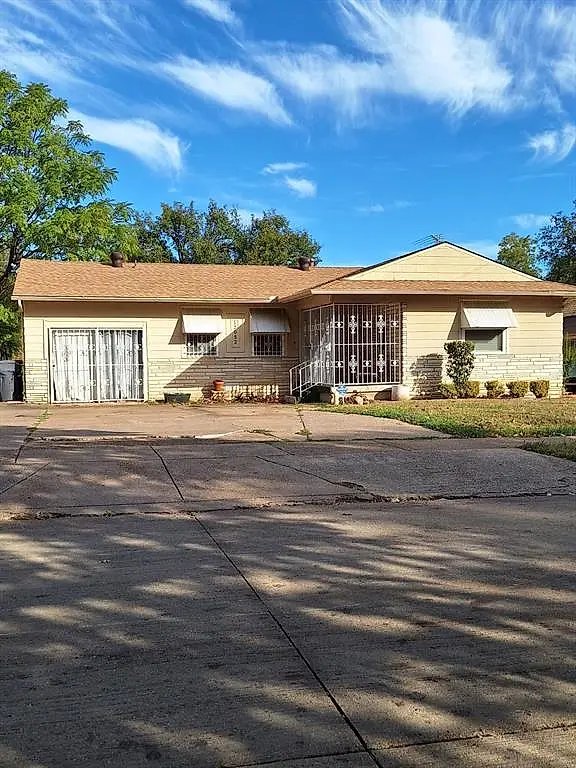
Dustin Pitts: Your Guide to Navigating the Dallas Living Costs
When it comes to finding the perfect place to live in Dallas, Dustin Pitts is your trusted advisor. With extensive experience in the Dallas real estate market, Dustin has a deep understanding of the city’s neighborhoods and the nuances of their cost structures. His expertise can help you identify affordable living options that align with your lifestyle and budget.
Dustin’s commitment to client satisfaction is evident in his personalized approach and thorough market knowledge. Whether you are looking for a trendy urban apartment or a spacious suburban home, Dustin can provide valuable insights and guidance to ensure you make an informed decision. Clients who have worked with Dustin praise his professionalism, responsiveness, and ability to simplify the home-buying process. Testimonials from satisfied clients highlight how Dustin has helped them navigate the complexities of the Dallas real estate market, making their transitions smooth and stress-free.
Conclusion
Understanding the cost of living in Dallas is essential for making a well-informed decision about moving to this vibrant city. From housing and utilities to transportation and healthcare, this guide provides a comprehensive overview of what to expect. Each aspect of living costs in Dallas plays a critical role in shaping your overall experience, and being prepared can help you manage your finances effectively.
By working with a knowledgeable realtor like Dustin Pitts, you can find the best neighborhoods that fit your budget and lifestyle needs. Dustin’s expertise in the Dallas real estate market ensures you receive personalized advice and support throughout your home search. For personalized assistance and expert advice on finding affordable living options in Dallas, contact Dustin Pitts today. Your ideal home in this dynamic city awaits!


